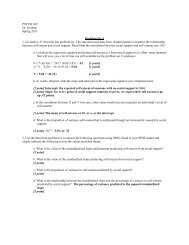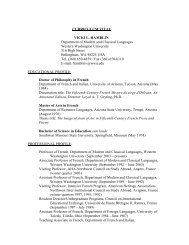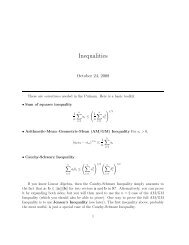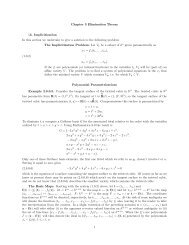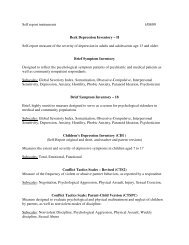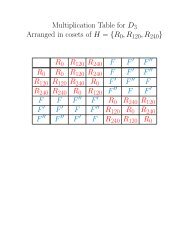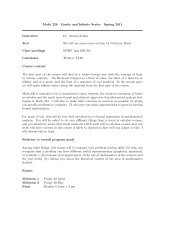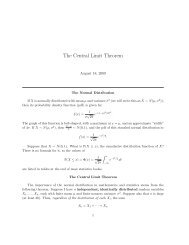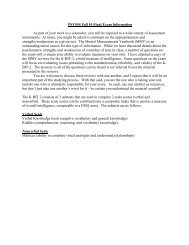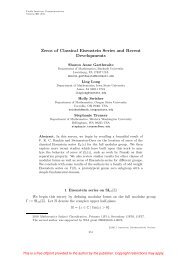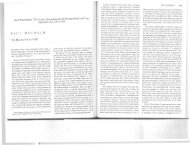Can There Be A Knowledge-First Ethics of Belief? - Western ...
Can There Be A Knowledge-First Ethics of Belief? - Western ...
Can There Be A Knowledge-First Ethics of Belief? - Western ...
You also want an ePaper? Increase the reach of your titles
YUMPU automatically turns print PDFs into web optimized ePapers that Google loves.
But this won’t quite do. Consider the conditions true belief and knowledge.<br />
Each <strong>of</strong> these is necessary for knowledge, and not identical to belief. Thus,<br />
the non-belief conditions theory tells us that every case where you should<br />
believe is a case where these conditions hold. But these conditions both<br />
entail belief. So the theory tells us that every case where you should believe<br />
is a case where you do believe. Compulsory completeness returns.<br />
Trying again, we might consider<br />
Non-<strong>Be</strong>lief-Requiring Conditions Theory<br />
(You should believe p) iff (for every condition x such that □(Kp →<br />
x) and ¬□(x → Bp), x obtains)<br />
According to this view, you should believe when, for every condition which<br />
is required by knowledge but which does not itself require belief, you meet<br />
it. By developing the “knowledge minus belief” approach in this way we<br />
nicely avoid the problem <strong>of</strong> compulsory completeness, because in building<br />
up the conditions under which you should believe, we factor out whatever<br />
requires you to believe. But there is a different problem. Consider the<br />
condition having a propositional attitude whose content is p. This condition<br />
is required by knowledge, and does not require belief. Thus it is a condition<br />
we must meet if we should believe a given proposition, according to the nonbelief-requiring<br />
conditions theory. The theory tells us that we should believe<br />
only those propositions such that we (already) have propositional attitudes<br />
with those propositions as their contents. And this is a mistake. To see why<br />
it is a mistake, consider Watson, that well intentioned but dim investigator<br />
working for Sherlock Holmes. Watson may have never even considered the<br />
proposition that Smith is the murderer; but this may only be because he did<br />
not properly follow his evidence. We can even imagine Holmes explaining it<br />
all to him after the fact; to this explanation, Watson might respond “Now<br />
I see - I should have believed it was Smith”. In this sort <strong>of</strong> case Watson<br />
speaks correctly; he should have believed it was Smith, even though he had<br />
no propositional attitude with that particular content. (If you don’t find<br />
this case convincing as it stands, alter it so that Watson is not dim, but just<br />
intellectually lazy). 9<br />
In light <strong>of</strong> the problems with the non-belief-conditions and non-belief-requiring<br />
conditions theories, we might try to move from the notion <strong>of</strong> necessary conditions<br />
on knowledge, to notion <strong>of</strong> conditions at least partly in virtue <strong>of</strong><br />
13




